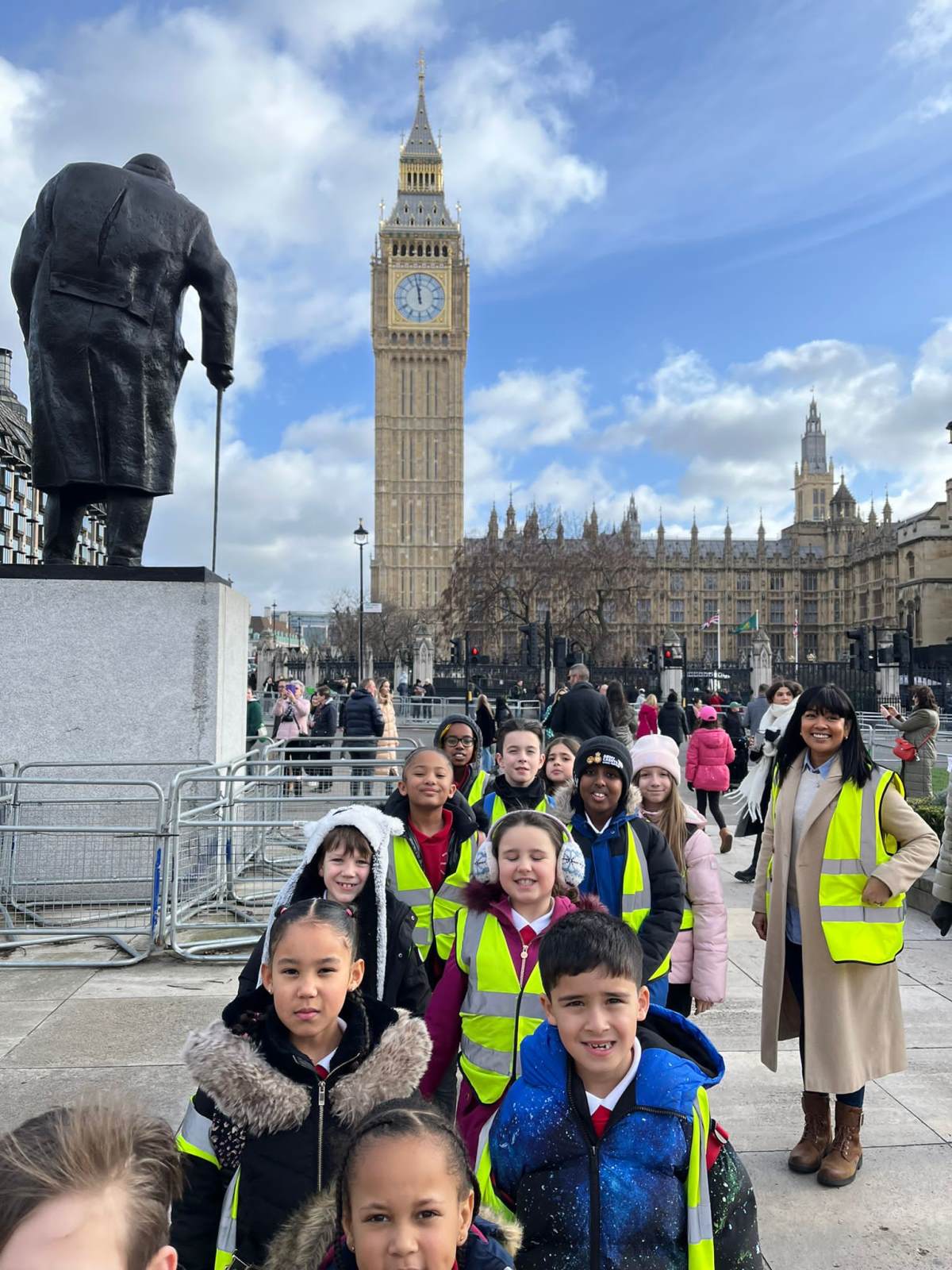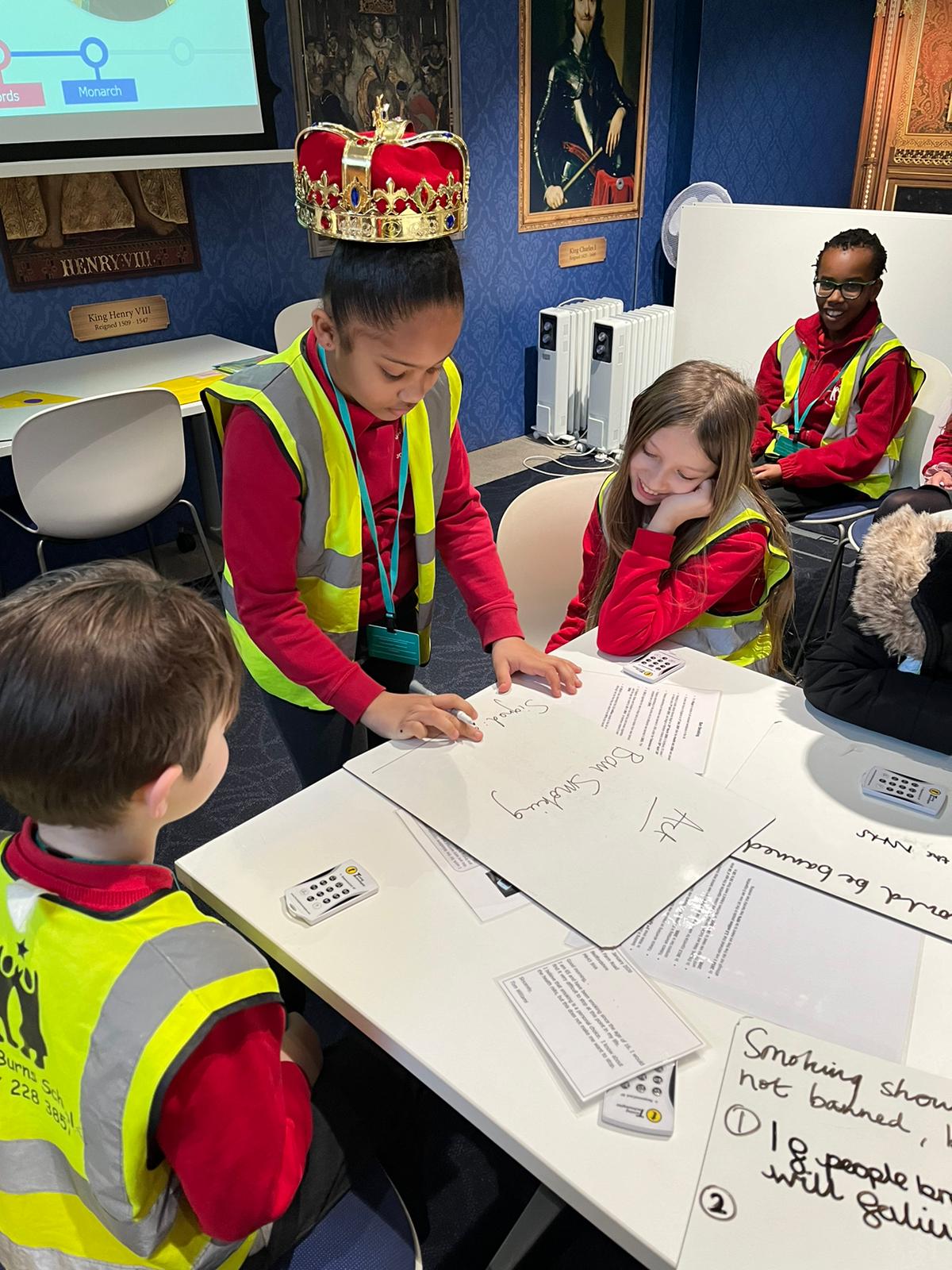School Council
Welcome to our School Council page.
What is a School Council?
A school council represents the views of all pupils.
It gives children the opportunity to make their voices heard and feel part of the whole school community.
Our School Council aims to encourage our children to:
- Develop confidence and responsibility and make the most of their abilities
- Prepare them to play an active role as citizens within a community
- Develop healthy, safer lifestyles
- Develop good relationships and respect the differences between people
- To have a 'voice' and to share their opinions and ideas with others.
Why do we have a School Council?
We value the benefits of operating a School Council. The School Council represents the whole school. We feel they benefit the whole community and as a school we operate as a community. Through our School Council and class council work, it is hoped that we can develop a balance and wholeness, helping to make our community more harmonious to live in. Our School Council work will enable pupils with positive attitudes to exert a positive influence. Everyone will benefit from the work of the School Council.
Our School Council aims to ensure all children have:
- A safe, happy and fair learning environment
- A form to voice their concerns and act upon them
- A structured opportunity to learn problem-solving skills
- An opportunity to take an active role in the organisation of the school
- An opportunity to experience a democratic process.
Our School Council should encourage pupils to develop:
- A sense of ownership over policy and practice
- A consensus over school issues such as behaviour and lunchtimes
- A responsibility towards the school community and environment
Our School Council should give pupils the experience of:
- Planning, organising and monitoring small projects
- Developing speaking and listening skills
- Debating skills
- Medication and negotiating skills
- Basic budgeting and managing money
Our School Council aims to prepare our pupils for citizenship by teaching them about roles, rights and responsibilities within the school system and the wider community.
The Election Process:
School Councillors are elected each year. If children wish to be considered for the School Council, they must write a speech; stating why they would like to be a councillor, what skills they believe they have and what improvements they would make. Speeches are given in a class hustings where candidates put forward their reasons for wanting to be a school councillor.
Two candidates (one male and one female) will be elected from each class in Key stage 1 and Key stage 2.
On election day the school hall is turned into a polling station where pupils vote with personalised ballot papers for their classes. Pupils enjoy casting their votes in the same way as their parents would during a general election!
Organisation:
- Two representatives from each Key Stage 1 class (Year 1 and Year 2)
- Two representatives from each Key Stage 2 class (Year 3, Year 4, Year 5 and Year 6)
- Link Teacher
- Meetings will take place 3-4 times per half term
- An agenda is to be organised by the Link Teacher
- Minutes will be recorded by the children and displayed on the School Council board.
Running the School Council Meetings:
The School Council will vote for a chair (supported by the Link Teacher). This is the person who makes sure everyone gets a turn to speak and encourages all members to contribute. In addition, the School Council will ensure someone takes notes during the meeting and the notes should assist the feedback classes receive after the meeting.
At the end of the School Council’s meeting, everyone needs to know what they have to do next. The chair needs to make sure members know what to do and what they have to say to their class.
Raising an issue or improvement at School Council Meetings:
Children in each class are actively encouraged to discuss issues, concerns and improvement suggestions during PSHE lessons, class Circle Times or by leaving a note in the class Worry Box. If appropriate, the class School Councillors can present the concerns or improvements to the School Council at the next meeting.
Feedback will be provided from each School Council Meeting through minutes from the meetings and feedback from the Link Teacher.
Giving Feedback to Pupils:
Following the School Council Meeting, School Council Members speak to their class to let them know what is going on and tell the class about the issues being discussed and what is happening next. This will encourage more children to contribute to further meetings, share worries and let members know the things which could be done to improve the school. The school will record School Council achievements on the school newsletter as and when appropriate.
The School Councillors for 2024-2025 are:
Year 1 (Jeffers Class) - Naiya and Asriel
Year 2 (Grey Class) - Kye'lah and Nemiah
Year 3 (Atinuke Class) - Afaf and Rhys
Year 4 (Pullman Class) - Naya and Zaidan
Year 5 (Shakespeare Class) - Ava and Malachi
Year 6 (Blackman Class) - Muhammad and Mohamed
School Council visit to the Houses of Parliament - January 2024
The School Council visited the Houses of Parliament on Monday 22nd January.
 |
 |
Here is what some school councillors had to say about the visit:
Scarlett
We learnt that members of the House of Lords are called lords (men) or baronesses (women). The House of Commons has MPs (Members of Parliament - both men and women. In Westminster Hall they left the Queen in the middle of the hall so the people of the United Kingdom (UK) and around the world could have one last chance to see her. There are silver plaques on the floor that mention the names of monarchs who had lying in state ceremonies.
Alexander
On Monday 22nd January we went to the House of Parliament. As we arrived in Parliament Square we saw statues of famous people from the past like Winston Churchill, Nelson Mandela, Millicent Fawcett and Emmeline Pankhurst. Millicent Fawcett and Emmeline Pankhurst were two woman who were trying to gain votes for women.
Bella
We learnt all about the House of Lords and the House of Commons. Lords and Baronesses go to the House of Lords. The people who go to the House of Commons are chosen by people. You can elect yourself to be an MP, but you need to be voted in. Just like how we ran the school council elections.
Ismail
On Monday 22nd January, we went to a very prestigious landmark called the House of Parliament. We met a guide who taught us a lot of information and showed us the two houses. Firstly, there is the House of Commons where people are elected to become an MP (Member of Parliament). Right now, our MP is called Marsha de Cordova.


